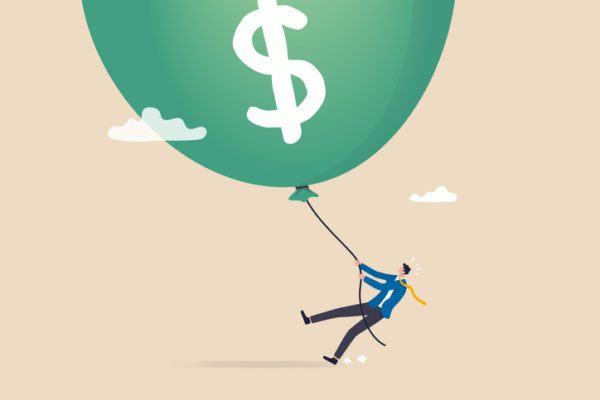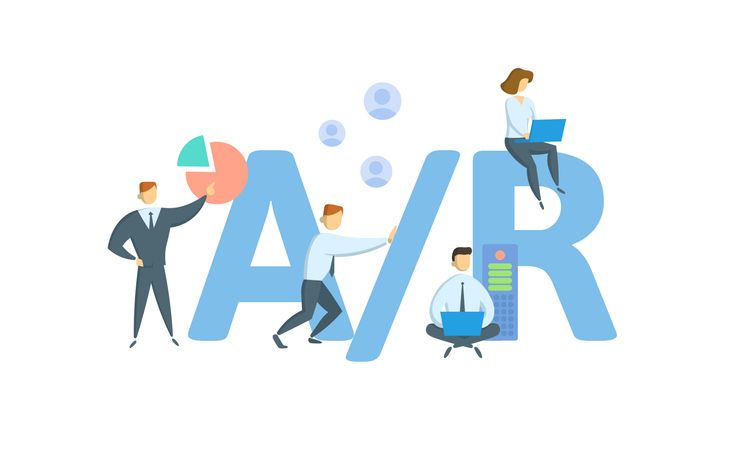Poise Your Company for Growth
Periods of high inflation can be worrying for a business owner. However, things might not be as dire as you fear. Indeed, economists believe that low levels of inflation can drive economic growth as the Federal Reserve targets an annual inflation rate of two percent.
The other crucial fact to keep in mind is that inflation is expressed as an annual figure. So, inflation of 8.6 percent equates to monthly price increases of 0.71 percent. Furthermore, the rate of inflation quoted in news bulletins is not a forecast; it is how much prices have risen in the past twelve months.
The inflation rate quoted in the US is usually based on the Consumer Price Index (CPI), an average across a wide range of consumer goods and services. So, an increase in inflation does not mean that all prices are rising by that percentage.
Nevertheless, inflation will have an impact on the profitability of a business. But the degree of impact will depend on the business sector. Suppose that energy prices are driving inflation. In that case, high energy use businesses will be hit the hardest and feel the effects first.
As consumer prices rise, wages also rise. Consequently, inflation increases the cost of most goods and services which results in eroding margins.
How does inflation manifest in a business’s cash flow?
Raw Materials and Overheads
As mentioned above, the impact of inflation on the cost of raw materials and overheads will depend on the type of business and individual circumstances. For example, the rapid increase in energy prices in 2022 immediately increased the cost of lighting and heating for every business. However, haulage and other high energy use businesses were hit first. Nevertheless, the increased haulage and shipping costs will later increase the cost of raw materials.
The timing of inflation’s impact on cash flow will also depend on the type of contracts the business has entered. For example, the payments on a rental agreement with no adjustment clause will not increase. Fixed price contracts for the supply of goods will be honored. However, if inflation persists, the price of such products and services will be higher when the contracts are renegotiated and renewed.
Businesses that import or export products may experience different cash flow effects of global inflation than those that only trade domestically. Inflation varies by country; consequently, importers may find their raw material costs rising slower than the national inflation rate. Currency conversion rates may fluctuate, too. For example, in September 2022, the UK pound hit a record low against the US dollar, making imports from the UK cheaper.
Related: How to Cut Business Costs
Wages
The rising prices on products and services will lead to calls for pay rises. However, there will be a delay between announced inflation rates, agreed pay raises, and the impact on cash flow. There is, however, a danger for businesses that employees will expect pay increases that future-proof against continued inflation. Such increases will worsen the squeeze on margins and cash flow.
Demand
The demand for price-inelastic essential consumer products and services will not immediately fall during a period of inflation. However, consumers will cut back on non-essential luxury goods as their real income drops. Consequently, businesses in these sectors will see an immediate reduction in demand, resulting in a decrease in sales revenue.
There will be a slower drop in demand for essential goods as people tighten their belts, with some people switching to cheaper brands to save money.
As consumers feel the effects of inflation, they will be looking for immediate savings. So, the retail sector will be the first to see sales falling on their cash flow reports. People will also reconsider making significant purchases if the economic situation does not improve.
Related: How to Manage Your Business Through a Period of Inflation
Price
So, the situation looks gloomy, with falling demand and increasing costs impacting net cash flow. The effects of inflation can be countered with improved efficiency and cost-cutting exercises. However, the most likely remedy will be increasing sale prices.
Customers will not welcome but will not be surprised by price increases. So, businesses should be upfront about the reason for increasing prices and not procrastinate over the decision. The monthly reduction in net cash flow may not appear to be significant. Still, the cumulative effect could leave a company struggling to meet its commitments. Furthermore, the inflationary pressures will make recovering the cash flow position challenging if inflation persists.
Collections
Consumers and businesses alike will have less cash to pay their bills. Consequently, companies will see an increase in overdue sales accounts and be at greater risk of incurring bad debts. If 50% of a business’s customers paid their invoices one week later, it would significantly impact cash flow. So, paying attention to the accounts receivable and improving collection methods are essential to minimize the effects of inflation on cash flow.
Related: How to Chase Overdue Customer Accounts Without Souring the Relationship
Cost of Borrowing
The usual response of central banks to inflation is to increase interest rates. This policy is adopted to make borrowing more expensive and saving more attractive, thus reducing demand and, therefore, prices. However, higher interest means higher repayments on variable-rate loans, which hits companies’ cash flow with this type of debt. Likewise, companies wishing to borrow during inflation will pay a higher interest rate.
Debt Repayment
Inflation makes one dollar worth less today than last year. So, while the interest on new and variable rate loans will be higher, the value in real terms of existing loans and repayments falls with inflation. Consequently, the cash flow of companies with significant debts will benefit from effectively lower repayments.
Related: 11 Warning Signs A Customer Account is About to Become a Bad Debt
The Bottom Line
There is no sugar coating the issue; continued high inflation will negatively impact most businesses’ cash flow. But businesses should plan ahead for brighter days as the economy runs in cycles. So, a period of high inflation will eventually come to an end. In the meantime, sound cash flow management, efficient credit control procedures, improved efficiency, and timely price increases will help a business weather the inflationary storm and poise it for growth.
Your Questions Answered Quickly
Whether your business is thriving and you can’t keep up, or you are waiting on clients to pay, Universal Funding can help your growing company. Call us at 800.405.6035 or complete our rate form today to learn more about invoice factoring and how it can improve your company’s cash flow.
About Universal Funding
Universal Funding is a nationwide invoice factoring solutions leader, supporting growth-focused businesses with scalable factoring solutions. With its invoice factoring, payroll funding, and purchase order financing services, Universal Funding provides clients with the working capital needed to grow and support their businesses without taking on new debt. Ranked as one of the nation’s top invoice factoring companies, Universal Funding provides cash flow financing for businesses all across the United States.



